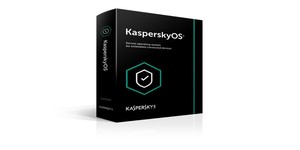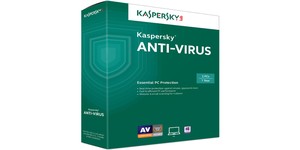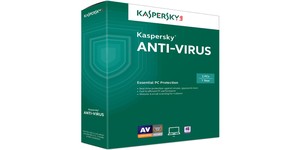KasperskyOS takes aim at embedded, industrial, and IoT
February 21, 2017 | 10:03
Companies: #kaspersky

Security firm Kaspersky has announced the launch of KasperskyOS, an allegedly secure operating system designed for use with network devices, industrial control systems, and the burgeoning Internet of Things (IoT).
Announced by company founder Eugene Kaspersky in a blog post published late last night, KasperskyOS is claimed to be an entirely new operating system built from the ground-up with a view to improving the security of embedded systems. 'This is not Linux. It’s literally not Linux; there’s not a single string of Linux code in it,' Kaspersky claimed in his announcement. 'We designed the OS from scratch, for different applications and purposes.'
The heart of KasperskyOS, and the reason its creators are confident in its security, is a process-level block on running anything which isn't part of its authorised deployment - meaning it's entirely useless as a general-purpose operating system but a major step up in security for embedded use. 'In order to create a secure environment, we need to enable global Default Deny at the process level and wrap it into a microkernel. In simple words, it’s a system that does what it’s instructed to and is unable to do anything else. With traditional operating systems, that’s impossible,' Kaspersky explained. 'When security has to be guaranteed, we have to build something new. Something that is secure by design.'
Kaspersky isn't going to be selling the software at retail, however, despite the mock-up packaging shot suggesting otherwise. 'We’re not selling a boxed solution with a cure-all for everyone. Instead, we collaborate with vendors and developers who provide, say, networking equipment, industrial automation systems, automotive solutions, even smart fridges,' claimed Kaspersky. 'We provide the code and help configure the system based on their requirements. Consequently, the cost of the solution depends on application and the labour that needs to be invested in the final product.'
A run-down of the security implemented in KasperskyOS is available from the company's SecureList site. Thus far, details of the first products to hit shelves running the platform have not been provided.
Announced by company founder Eugene Kaspersky in a blog post published late last night, KasperskyOS is claimed to be an entirely new operating system built from the ground-up with a view to improving the security of embedded systems. 'This is not Linux. It’s literally not Linux; there’s not a single string of Linux code in it,' Kaspersky claimed in his announcement. 'We designed the OS from scratch, for different applications and purposes.'
The heart of KasperskyOS, and the reason its creators are confident in its security, is a process-level block on running anything which isn't part of its authorised deployment - meaning it's entirely useless as a general-purpose operating system but a major step up in security for embedded use. 'In order to create a secure environment, we need to enable global Default Deny at the process level and wrap it into a microkernel. In simple words, it’s a system that does what it’s instructed to and is unable to do anything else. With traditional operating systems, that’s impossible,' Kaspersky explained. 'When security has to be guaranteed, we have to build something new. Something that is secure by design.'
Kaspersky isn't going to be selling the software at retail, however, despite the mock-up packaging shot suggesting otherwise. 'We’re not selling a boxed solution with a cure-all for everyone. Instead, we collaborate with vendors and developers who provide, say, networking equipment, industrial automation systems, automotive solutions, even smart fridges,' claimed Kaspersky. 'We provide the code and help configure the system based on their requirements. Consequently, the cost of the solution depends on application and the labour that needs to be invested in the final product.'
A run-down of the security implemented in KasperskyOS is available from the company's SecureList site. Thus far, details of the first products to hit shelves running the platform have not been provided.

MSI MPG Velox 100R Chassis Review
October 14 2021 | 15:04








Want to comment? Please log in.